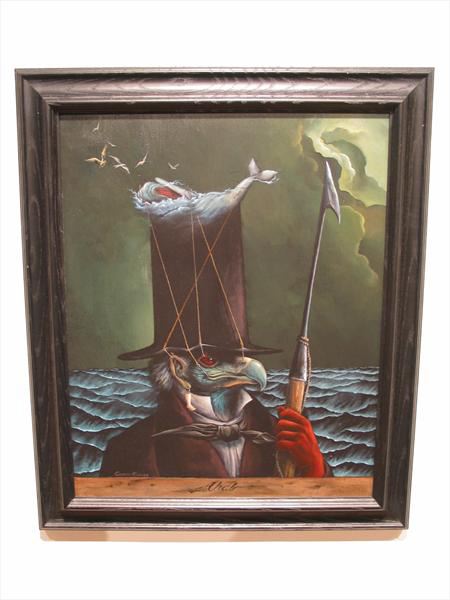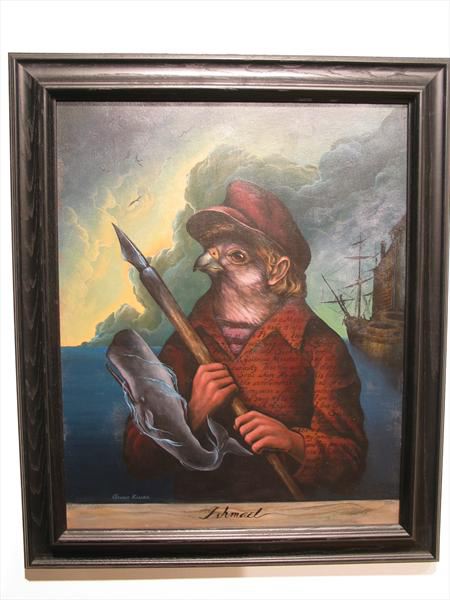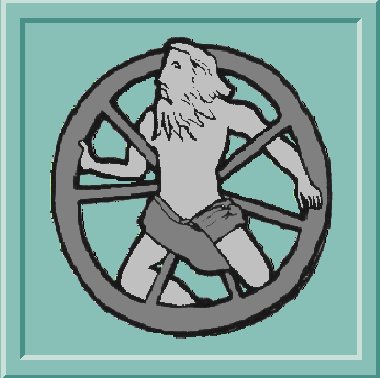Serendip is an independent site partnering with faculty at multiple colleges and universities around the world. Happy exploring!
Moby-Dick, The End
Notes Towards Day 10 of Emerging Genres
4 pp. papers due Monday by 5, in hard copy
in my mailbox in English House and on-line
(from the Working Group on Emergence, 2/20/08):
but to ENCHANCE unpredictablity, to EXACERBATE random change...
II. old business
being told about American literature (in Am Lit anthologies)--
the history of genre theory in Duff's anthology
emergence of the 19th century American novel
what genre is signaled by the covers?
how is Melville presented? how about Harriet Beecher Stowe?
into the story of emerging American literatures?


![]()
V. From Your Earlier Musings on Moby-Dick,
the kind, the type, the "species"....
let's have a dialogue...dialectic??
is this novel a "classic"? "should" it be???
Marina: I felt like I was losing alot that I could have gained from this book because Melville didn’t explainwhat he was talking about...Though Ifind it to be an entertaining book, I don’t believe it should be considered aclassic and I’m also not sure it should have such an emphasis in English courses.
Al: We cannot ever entirely rid ourselves of stereotypes, because our brain wants to classify information on a generalized, categorized level. What we can do is change our method of categorization....can this idea hold true for the stereotypes/generalizations about literature?... what we have heard about Moby Dick, is that it is another scholarly work, part of “the classics"....I can’t currently foresee...this notion changing without some evolution of how we deal with texts.
Claire: I think I like it for the same reason that a lot of people hate it: I expected it to be a novel, and it wasn’t. It was probably the first thing I ever ready that really surprised me in that way. I decided I liked it for this rather enigmatic quality that makes it not quite a novel...
On the role of imaginative literature...
"The ethical purpose of a liberal education is to liberate, which can only mean to make one capable of conceiving society as free, classless, and urbane. No such society exists, which is one reason why a liberal education must be deeply concerned with works of imagination. The imaginative element in works of art...lifts them clear of the bondage of history" (Northrop Frye, "Tentative Conclusion," Anatomy of Criticism, 1957, p. 347).
How do you now understand Ishmael's role?
Claire, continuing: it truly makes the work a story from out of a man’s mind...remembered and reconstructed...allowing us into his memories and all the opinions he has of them and all the information he associates with them.... I’m reading the story of Ishmael remembering these events.
Al: Ishmael is not the narrator, not a character. The story only exists because he does, and because on some level he needs it. On some level even, he may be like God.
How do you understand the role of the crew...
and of us, as readers??
Ellen: Melville seems to be making fun of the reader for reading into the novel too much, and looking for meaning in it. That led me to wondering if maybe Melville was comparing us (the meaning-seeking readers) to the crew, who are so eager to follow their captain on his quest for vengeance...
According to...the concept of Terror Management Theory...culture... acts as a sort of psychological barrier against the thought of death....Ahab...is a representative of the culture...so the [men] cling to him...this representative of their culture is attempting to kill...an underlying malicious force in the universe...
what have we read?
A comedy? A tragedy? An "anatomy"? The chaos of life?
(In what ways is it helpful/not to ask/answer this question?)
And I Only Am Escaped Home to Tell Thee
Let's end with the ending. How do you read it?
I was then, but slowly, drawn towards the closing
vortex....Round and round, then, and ever contracting towards the
button-like black bubble at the axis of that slowly wheeling circle, like another Ixion
I did revolve. Till gaining that vital centre, the black bubble upward
burst....I floated on a soft and dirge-like main. The unharming sharks,
they glided by as if with padlocks on their mouths; the savage
sea-hawks sailed with sheathed beaks (Epilogue, p. 427).
Does this passage seem to you peaceful, accepting, even "zen-like"?
What do you know of Ixion?

Have we, liked Ixion, just circled 'round and 'round in the same place?
...whereto does all that circumnavigation conduct...
to the very point whence we started ? (p. 196)



